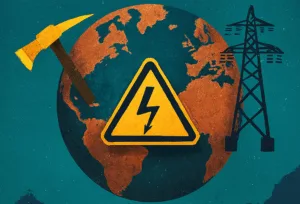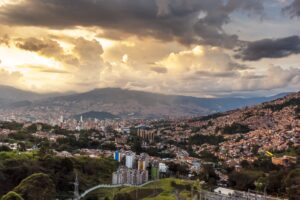Germany is a country close to my heart. I’ve always been interested in its history, its customs, and its structured way of thinking. In 1998, I had the good fortune of living there as part of a student exchange. Something that deeply marked me at the time was the shame that generation still carried over World War II.
Twenty-five years later, today’s Germany seems different—undisputedly leading Europe and playing a key role in global affairs. The years of division and post-war recovery seem behind them—though scars remain, of course. Still, the Germans gradually found a way to redeem themselves.
Through its domestic energy policy, Energiewende (“energy transition” in German), the country aligned its foreign policy to position itself as a different kind of global leader: a soft power, guiding the energy transition and inserting its vision into the global political-energy system.
As Joseph Nye explains, soft power is exercised “through intangible assets such as an attractive personality, culture, values, and political institutions that are seen as legitimate or having moral authority” (Nye, 2008a, p. 95). In this sense, Germany chose its path wisely.
The Energiewende was a public policy response to the 1970s oil crisis. Its main goal was to end dependence on fossil fuels, which posed a national security risk, and to find alternatives—the answer being renewable energy.
Germany found its niche in leadership: it promoted renewables, developed technology, offered subsidies, and implemented policies to export its energy technology, proudly “Made in Germany.” In 2009, it supported the creation of the International Renewable Energy Agency (IRENA), further cementing its role in the global transition.
Germany’s vision for the energy transition influenced countries around the world. This soft power was evident in how it shaped the global narrative—fueling a somewhat utopian ideal of a renewable-powered future now reflected in much of global public opinion.
But there’s a difference between discourse and reality. That ideal was shaken to its core on February 24, 2022—a reality check. Germany’s lack of energy diversification left it importing nearly 70% of its energy, and suddenly, its main supplier pulled the rug out from under it.
We know the consequences: skyrocketing energy prices for German consumers and growing criticism that Germany abandoned transitional technologies like nuclear power and fracking—tools that could have ensured energy security and helped reduce emissions. Instead, they had to return to coal, at least in the short term.
Perhaps in their quest for a better society, Germans found purpose in soft leadership—a way to erase the scarlet letter they felt had long defined them. But in doing so, they forgot pragmatism, a trait so typically German. Today, Freud might remind them:
“One must accept without complaint when illusions are shattered by the reality in which they break apart.”
Carolina Rojas Gómez
Student, Executive Master of Management in Energy
BI Norwegian Business School


